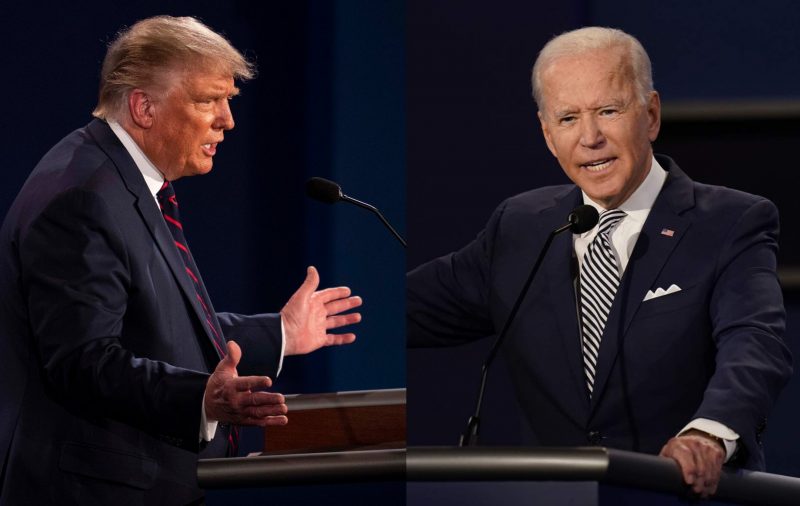“Contrary to many countries where voting is organized at the national level, in the American federalist system our elections processes are a state (and sub-state) competency,” Bridgett King, a lecturer at the University of Kentucky’s Department of Political Science, emphasized in her opening remarks during a recent briefing organized by the Washington Foreign Press Center.
In the intricate fabric of American democracy, the path to selecting candidates for national elections is a complex journey shaped by federalist principles and diverse state-driven processes. Ms King recently provided invaluable insights during a briefing in Washington, unravelling the nuances of the American electoral system and shedding light on its multifaceted nature.
Her analysis began by highlighting a fundamental aspect often overlooked by observers: the decentralized nature of American elections. Contrary to many countries with centralized election systems, the United States operates within a federalist framework where states, counties, and localities wield significant authority over voting procedures. This decentralization, as Ms King emphasized, has profound implications for how American voters engage in the democratic process.
The roots of this decentralized system run deep, stemming from historical circumstances that shaped early American governance. Ms King pointed out that the evolution towards a state-centric electoral structure was a response to the chaotic and uncertain conditions prevalent during America’s formative years. This historical context underscores the intricate blend of pragmatism, compromise, and adaptation that defines the American electoral landscape.
One of the pivotal topics addressed by the don was the diversity of election authorities and administrative frameworks across the country. With over 10,000 local jurisdictions involved in election processes, each with its own set of rules and responsibilities, the American electoral system reflects a mosaic of approaches shaped by the principles of federalism and local autonomy. This diversity, Ms King noted, underscores the adaptability of democracy to local needs and preferences.
On the mechanics of candidate selection, Ms King provided invaluable insights into the intricate processes of primary elections and caucuses. “On the Republican side, there are 2,429 total delegates, of which 2,328 are pledged and 104 are unpledged,” she said, adding that, “The Democratic Party side has 4,672 total delegates, with about 3,900 pledged and 739 unpledged, also known as superdelegates.”
She also spoke on the selection of a presidential nominee for the Republican National Convention (RNC) and Democratic National Convention (DNC).
“To secure the nomination, a Republican candidate will need 1,215 delegates” whereas, “For the Democratic Party, the nominee needs to secure 1,968 pledged delegates.”
These preliminary stages, she explained, play a crucial role in nominating candidates for the parties’ national conventions. She, however, clarified that voters participating in primaries and caucuses do not directly select candidates but rather delegates who will represent their preferences at the party conventions. This distinction highlights the indirect yet influential role of voters in shaping electoral outcomes.
The dynamics of delegate selection, including pledged and unpledged delegates, were explained by Ms King to underscore the complexities of the American electoral process. Pledged delegates, bound by the outcomes of primaries and caucuses in their respective states, form a critical link between voter preferences and the final nomination of candidates at the national conventions. Ms King’s insights into delegate allocation methods, such as proportional representation and winner-take-all systems, provided a deeper understanding of how candidates secure their party’s nomination.
Beyond the intricacies of candidate selection, she also discussed the varying election administration practices prevalent across states. From voter registration deadlines to certification processes, the diversity in approaches underscores the decentralized nature of American democracy. She emphasized the importance of accurately capturing these variations to ensure a nuanced understanding of the electoral landscape.
The briefing concluded with a discussion on brokered conventions, rare occurrences where no candidate secures most delegates. Drawing from historical examples, she illustrated the complexities of brokered conventions and the intricate negotiations that unfold, highlighting the resilience of party mechanisms in addressing unique electoral challenges.
Ms King’s insights provide a comprehensive roadmap for navigating the American electoral maze. Her analysis illuminates the intricate interplay between federalism, state-driven processes, delegate selection mechanisms, and administrative diversity, offering invaluable perspectives for scholars, policymakers, and citizens alike seeking a deeper understanding of American democracy.
Pearl Matibe is a Washington, DC-based White House Correspondent, and media commentator with expertise in US foreign policy and international security. You may follow her on Twitter: @PearlMatibe
Support PREMIUM TIMES’ journalism of integrity and credibility
Good journalism costs a lot of money. Yet only good journalism can ensure the possibility of a good society, an accountable democracy, and a transparent government.
For continued free access to the best investigative journalism in the country we ask you to consider making a modest support to this noble endeavour.
By contributing to PREMIUM TIMES, you are helping to sustain a journalism of relevance and ensuring it remains free and available to all.
Donate
TEXT AD: Call Willie – +2348098788999




